Kiarash Mohammadi
Causal Adversarial Perturbations for Individual Fairness and Robustness in Heterogeneous Data Spaces
Aug 17, 2023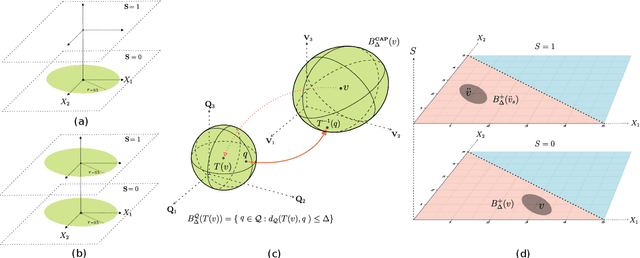

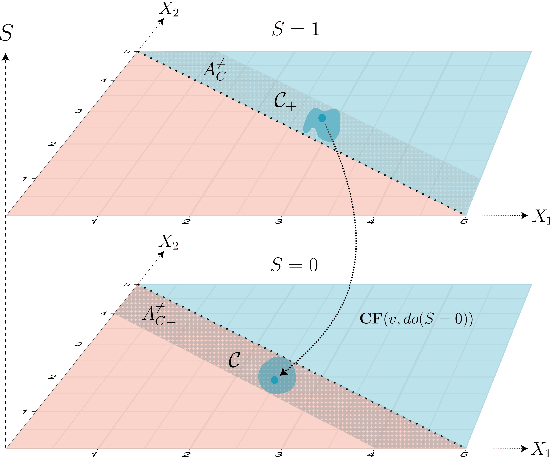

Abstract:As responsible AI gains importance in machine learning algorithms, properties such as fairness, adversarial robustness, and causality have received considerable attention in recent years. However, despite their individual significance, there remains a critical gap in simultaneously exploring and integrating these properties. In this paper, we propose a novel approach that examines the relationship between individual fairness, adversarial robustness, and structural causal models in heterogeneous data spaces, particularly when dealing with discrete sensitive attributes. We use causal structural models and sensitive attributes to create a fair metric and apply it to measure semantic similarity among individuals. By introducing a novel causal adversarial perturbation and applying adversarial training, we create a new regularizer that combines individual fairness, causality, and robustness in the classifier. Our method is evaluated on both real-world and synthetic datasets, demonstrating its effectiveness in achieving an accurate classifier that simultaneously exhibits fairness, adversarial robustness, and causal awareness.
FETA: Fairness Enforced Verifying, Training, and Predicting Algorithms for Neural Networks
Jun 01, 2022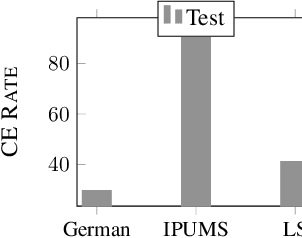

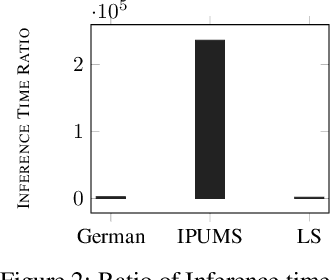

Abstract:Algorithmic decision making driven by neural networks has become very prominent in applications that directly affect people's quality of life. In this paper, we study the problem of verifying, training, and guaranteeing individual fairness of neural network models. A popular approach for enforcing fairness is to translate a fairness notion into constraints over the parameters of the model. However, such a translation does not always guarantee fair predictions of the trained neural network model. To address this challenge, we develop a counterexample-guided post-processing technique to provably enforce fairness constraints at prediction time. Contrary to prior work that enforces fairness only on points around test or train data, we are able to enforce and guarantee fairness on all points in the input domain. Additionally, we propose an in-processing technique to use fairness as an inductive bias by iteratively incorporating fairness counterexamples in the learning process. We have implemented these techniques in a tool called FETA. Empirical evaluation on real-world datasets indicates that FETA is not only able to guarantee fairness on-the-fly at prediction time but also is able to train accurate models exhibiting a much higher degree of individual fairness.
Scaling Guarantees for Nearest Counterfactual Explanations
Oct 10, 2020
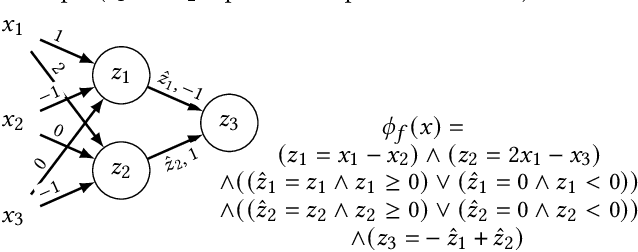

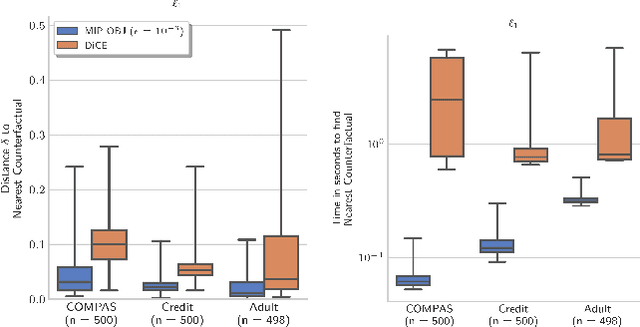
Abstract:Counterfactual explanations (CFE) are being widely used to explain algorithmic decisions, especially in consequential decision-making contexts (e.g., loan approval or pretrial bail). In this context, CFEs aim to provide individuals affected by an algorithmic decision with the most similar individual (i.e., nearest individual) with a different outcome. However, while an increasing number of works propose algorithms to compute CFEs, such approaches either lack in optimality of distance (i.e., they do not return the nearest individual) and perfect coverage (i.e., they do not provide a CFE for all individuals); or they cannot handle complex models, such as neural networks. In this work, we provide a framework based on Mixed-Integer Programming (MIP) to compute nearest counterfactual explanations with provable guarantees and with runtimes comparable to gradient-based approaches. Our experiments on the Adult, COMPAS, and Credit datasets show that, in contrast with previous methods, our approach allows for efficiently computing diverse CFEs with both distance guarantees and perfect coverage.
 Add to Chrome
Add to Chrome Add to Firefox
Add to Firefox Add to Edge
Add to Edge